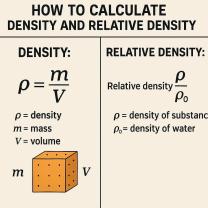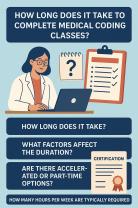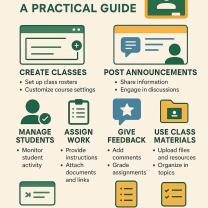What does teacher training involve?
Teacher training, also known as professional development for educators, is a process that involves various activities and programs aimed at enhancing the skills, knowledge, and effectiveness of teachers. The goal is to continuously improve teaching practices, stay informed about educational trends, and address the evolving needs of students. Here is an overview of what teacher training typically involves:
1. Initial Teacher Education:
Pre-Service Teacher Training:
- Individuals aspiring to become teachers usually undergo pre-service teacher education at colleges or universities. This involves completing a bachelor's degree in education or a related field.
Teacher Certification:
- After completing the pre-service education, prospective teachers may need to obtain teacher certification or licensure. This process often includes passing exams, demonstrating teaching competencies, and fulfilling other state or regional requirements.
2. Induction and Mentorship:
Induction Programs:
- Newly certified teachers often participate in induction programs, which provide support and mentorship during their initial years of teaching.
Mentorship:
- Many schools pair new teachers with experienced mentors who provide guidance, share best practices, and help newcomers navigate their roles.
3. Ongoing Professional Development:
Workshops and Seminars:
- Teachers attend workshops and seminars on various topics, such as instructional strategies, classroom management, technology integration, and subject-specific content.
Conferences:
- Educators participate in conferences to engage with the broader education community, learn from experts, and stay updated on the latest research and trends.
In-Service Training:
- In-service training occurs within schools or districts and focuses on specific needs identified by administrators or teachers themselves.
Online Courses and Webinars:
- Teachers can take advantage of online courses and webinars to access professional development opportunities conveniently.
Collaborative Learning Communities:
- Teachers participate in collaborative learning communities within their schools or online platforms, sharing ideas and learning from one another.
4. Specialized Training:
Special Education Training:
- Teachers may receive training in special education strategies and accommodations to better support students with diverse learning needs.
English Language Learner (ELL) Training:
- Training in strategies for teaching English language learners can help educators address the needs of students with limited English proficiency.
Technology Integration:
- Training in technology integration ensures that teachers can effectively incorporate digital tools and resources into their teaching practices.
5. Leadership Development:
Aspiring Leaders Programs:
- Some teachers undergo training to become school leaders or administrators through aspiring leaders programs.
Advanced Degrees:
- Pursuing advanced degrees, such as a master's or doctoral degree in education, can contribute to leadership skills and subject expertise.
6. Evaluation and Feedback:
Teacher Evaluation:
- Schools often conduct teacher evaluations to assess performance and identify areas for improvement.
Feedback Mechanisms:
- Establishing regular feedback mechanisms, including peer observations and self-reflection, allows teachers to continuously refine their instructional practices.
7. Culturally Responsive Training:
Cultural Competency Training:
- Training in cultural competency helps teachers create inclusive and culturally responsive learning environments.
Equity and Diversity Workshops:
- Workshops addressing equity and diversity issues provide teachers with tools to address disparities in education.
8. Legal and Ethical Training:
Legal Compliance Training:
- Teachers receive training on legal and ethical considerations in education, ensuring compliance with laws and ethical standards.
Safety and Crisis Response Training:
- Training in safety protocols and crisis response equips teachers to handle emergencies and ensure a secure learning environment.
9. Assessment and Data Literacy:
Assessment Training:
- Teachers receive training in designing assessments, interpreting data, and using assessment results to inform instruction.
Data Literacy Workshops:
- Workshops on data literacy help teachers make informed decisions based on student performance data.
10. Reflection and Continuous Improvement:
Self-Reflection:
- Teachers engage in regular self-reflection to identify strengths, areas for improvement, and goals for professional growth.
Professional Learning Plans:
- Developing and implementing professional learning plans helps teachers set and achieve their professional development goals.
Teacher training is a dynamic and ongoing process that adapts to the changing landscape of education. It encompasses a wide range of activities designed to empower educators with the knowledge, skills, and support needed to create effective and inclusive learning environments for their students.
What topics and practices are typically covered in teacher training programs?
Topics and Practices Covered in Teacher Training Programs
Teacher training programs, also known as teacher preparation programs, equip aspiring educators with the knowledge, skills, and dispositions necessary to effectively teach in K-12 schools. While specific topics and practices may vary depending on the program, the following areas are typically covered:
1. Foundational Knowledge:
- Subject matter expertise: In-depth knowledge of the specific subject(s) they intend to teach, ensuring they possess a strong understanding of the content and curriculum.
- Pedagogical theory: Exploring various theories of learning and development, instructional design principles, and effective teaching strategies.
- Assessment and evaluation: Learning how to design and implement assessments to measure student learning and progress.
- Educational psychology: Understanding how students learn, including cognitive development, motivation, and learning styles.
- Technology integration: Learning how to effectively integrate technology into the curriculum to enhance learning experiences.
2. Practical Skills:
- Lesson planning and instruction: Developing skills in planning engaging and effective lessons aligned with curriculum standards.
- Classroom management: Learning strategies for creating a positive and supportive learning environment, managing student behavior, and promoting classroom routines.
- Differentiation: Adapting instruction to meet the diverse needs of all learners, including students with disabilities and those from diverse backgrounds.
- Communication and collaboration: Building strong communication skills to effectively engage with students, parents, colleagues, and the school community.
- Professionalism and ethics: Upholding professional standards and ethical conduct in teaching.
3. Clinical Experiences:
- Field placements: Completing supervised teaching placements in actual classrooms under the guidance of experienced educators.
- Practicums and internships: Engaging in practical learning experiences where they apply their theoretical knowledge to real-world teaching situations.
- Student teaching: Culminating experience where aspiring teachers take full responsibility for a classroom, under the supervision of a cooperating teacher.
4. Additional Topics:
- Special education: Understanding how to meet the needs of students with disabilities and ensure inclusive learning environments.
- Multicultural education: Developing cultural competency and understanding how to meet the needs of diverse learners.
- Social-emotional learning: Supporting students' social-emotional development and well-being.
- Educational technology: Learning how to utilize various educational technologies to enhance instruction and student learning.
- Leadership: Exploring leadership principles and developing skills for effective leadership roles within the school community.
Furthermore, teacher training programs often emphasize the importance of:
- Reflective practice: Engaging in critical self-reflection to continuously improve teaching practices.
- Collaboration and teamwork: Working effectively with colleagues and other stakeholders to support student learning.
- Lifelong learning: Recognizing the importance of continued professional development and staying updated on current research and best practices in education.
It's important to remember that the specific content and structure of teacher training programs can vary greatly depending on the institution, program type, and specific state requirements.
Here are some resources for further information:
- National Council on Teacher Quality (NCTQ): https://www.nctq.org/
- Council for the Accreditation of Educator Preparation (CAEP): https://caepnet.org/
- National Board for Professional Teaching Standards (NBPTS): https://www.nbpts.org/certification/standards/
I hope this information helps!












